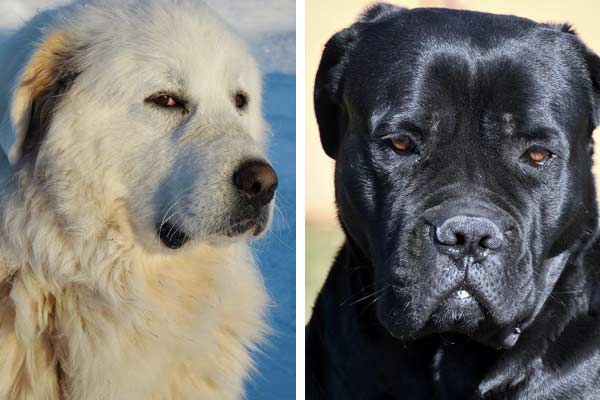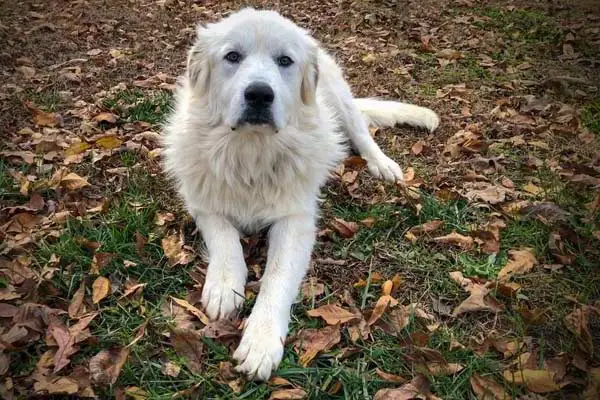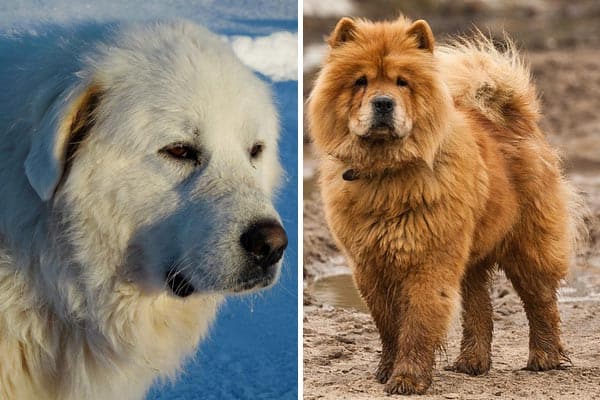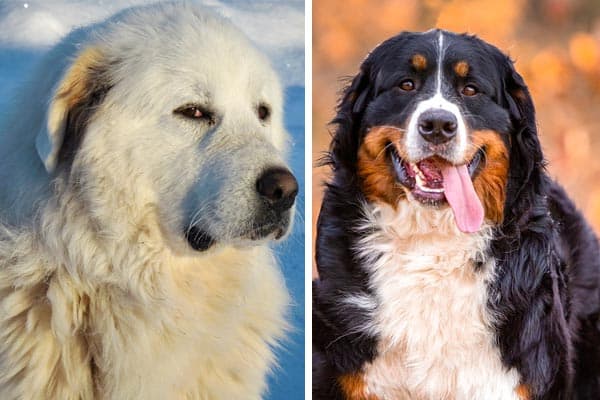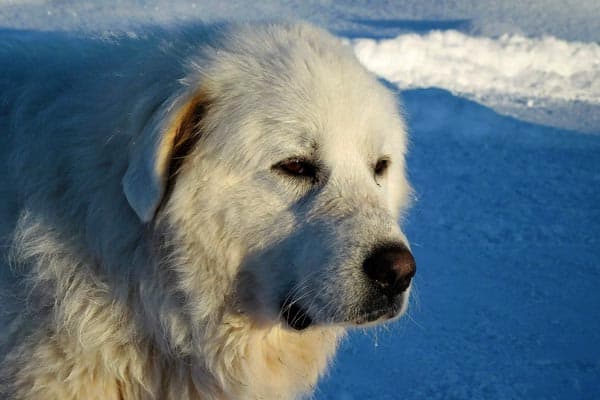How Much Does a Great Pyrenees Cost: Understanding the High Price of These Prized Pups
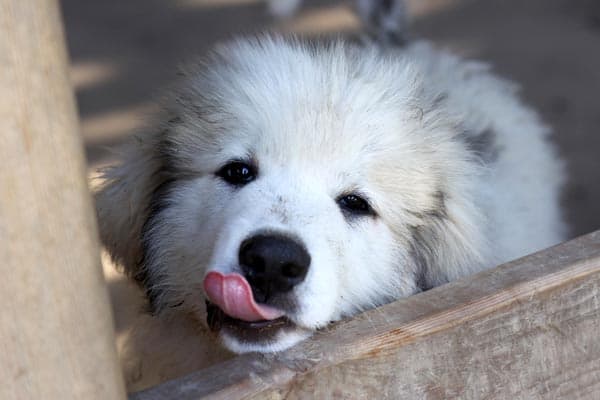
The Great Pyrenees is a centuries-old dog breed with a very specialized work history.
These enormous dogs have a reputation for being extremely gentle and loving – a trait the American Kennel Club (AKC) goes so far as to describe as “Zen-like.”
As the Great Pyrenees Club of America points out, the price you pay for your Great Pyrenees will depend on the individual breeder and the individual puppy.
In this article, we will take a look at each of the factors that may influence what you pay for your Great Pyrenees purebred puppy or rescue dog.
How Much Does a Great Pyrenees Cost?
The price you pay for your Great Pyrenees can range anywhere from $1,000 to $4,000 and up. What is the reason for such a large difference in price? There are several key factors to be aware of, which we will delve into in great detail in the rest of this article.
Learn More About the Great Pyrenees Dog Breed History
This short, sweet video shares some little-known facts about the Great Pyrenees dog breed – including that they tend to be nocturnal!
This is likely a trait that served them well in centuries past when they were watching over livestock herds at night. Today, it just means that your Great Pyrenees may take a lot of daytime naps.
Price Too Steep? Consider Rescuing a Great Pyrenees Instead
As the Texas Great Pyrenees Rescue charity points out, Great Pyrenees dogs are not the right fit for every family.
Often when the Great Pyrenees are relinquished or rescued, it is because the dog needed more exercise or a bigger yard or was too expensive for the family to care for. This is especially true right now in these unprecedented pandemic times.
You can give the Great Pyrenees a new forever home and also get a price break by rescuing a dog instead of buying from a breeder.
Sometimes big shelters like the ASPCA will run “free adoption” specials when the shelters get overcrowded. Your new dog will already be neutered or spayed and given all required vaccinations and pest control treatments, so you won’t have to pay for that.
And frequently you will be given a new pet welcome kit that includes a leash, collar, food, microchipping, toys, bedding, and treats.
The Texas Great Pyrenees Rescue charity charges between $360.50 and $437.75 because they are a small private charity that handles their own veterinary bills.
But that is still a very reasonable cost when compared against the cost of a purebred Great Pyrenees starting at $1,500.
Why Pay More to Buy From a Reputable Great Pyrenees Breeder?
Remember in the introduction here when we mentioned that the price you pay for a Great Pyrenees puppy will depend on the individual breeder and each individual puppy?
There are some very good reasons why different breeders may charge different prices and why different puppies from the same litter may cost different prices.
Here is an example from Bear Branch Farms Great Pyrenees breeder.
- Puppies with limited registration (without breeding rights) cost $1,250.
- Puppies with full registration (including breeding rights) cost $1,700.
Here is another example from Up North Great Pyrenees breeder.
- Puppies with limited registration (without breeding rights) cost $1,000.
- Puppies with full registration (including breeding rights) are more expensive and prices are not listed.
Here is yet another example from the Arizona White Mountain Pyrenees breeder.
- Puppies with limited registration (without breeding rights) cost $1,400.
- Puppies with full registration (including breeding rights) are more expensive and prices are not listed.
So here in these three breeder examples, you can see that pricing ranges from $1,000 to $1,400 for a limited registration Great Pyrenees puppy.
Why is there such a difference? Let’s take a closer look to find out.
What Causes Great Pyrenees Puppy Prices to Vary?
A number of different variables can cause the price of a Great Pyrenees puppy to fluctuate between breeders and even for individual litters.
Puppy demand
The first and most reliable factor that can cause prices to go up or down is the demand for Great Pyrenees puppies.
Every year, it seems there is a new dog breed that suddenly everyone seems to want. Often this is driven by news stories or viral social media posts or celebrities.
But when demand goes up for the same number of puppies, breeders can afford to charge more for the same dog.
Here, it is worth mentioning that reputable dog breeders are not typically in it for the money, because dog breeding is very expensive and can come with some very unexpected steep costs.
However, when a breeder is able to charge more, this helps recoup past costs and also supports future litters.
Breeding costs
Speaking of breeding costs, the average litter of puppies can be extremely expensive to breed!
As Breeding Business outlines, the cost of breeding just one time can range from $1,600 to over $8,000. The low cost is a no-surprises natural birth. The high cost is the opposite case.
The Great Pyrenees will typically have between six and 12 puppies per litter. So you can see that with a low-cost birth, the breeder may make money. With a high-cost birth, breeding the puppies may cost the breeder money.
Then there are the costs of having the veterinarian examine each puppy, registering the puppies and getting their purebred papers, getting them vaccinated, having pest treatments done, marketing to find owners for the puppies, and many more expenses.
This is why reputable dog breeders say they are not in it for the money. They love the dog breed and that is why they do it.
Championship stock
Another reason why you might see some Great Pyrenees puppies offered for a higher price is if the breeder is breeding from championship breed lines.
If the parent dogs have won show competitions or working dog competitions and are title-holders, these dogs may be especially in demand.
Other aspiring breeders may want to acquire puppies to start their own kennels and dog breeding operations. Or dog lovers may want a championship line puppy to have a better chance of winning dog competitions.
Puppy traits
Just like some dog breeds tend to be “in fashion” every year, so too there are some puppy colors that are more popular in some years.
If a puppy is born with unique coloration or perfect conformation (appearance), this is something else that can cause the price to increase.
You probably noticed in the earlier three examples that puppies that came with both purebred registration papers and breeding rights cost more than the other puppies.
This means that the puppies have the ideal conformation and are suitable for dog breeding. However, not all breeders will sell these puppies because they want to keep them and breed them.
So often you will have to work hard to convince a breeder to sell you a puppy that comes with breeding rights and you will also have to pay more for such a puppy.
How to Tell You Are Working With a Reputable Great Pyrenees Breeder
You may be reading this article and thinking “But I say Great Pyrenees puppies advertised online for just a couple hundred bucks! Why are they so cheap?”
This is a great question.
You may have heard the terms “backyard breeder” or even “puppy mills.” So let’s take a quick look at what these two terms generally mean.
Backyard dog breeders
Breeders that get into dog breeding by accident or “just for fun” are typically called backyard breeders.
These breeders may discover their unfixed female got knocked up by the male dog down the street because, after all, “dogs will be dogs.” So then they decide to sell the puppies to make some extra money.
However, the puppies likely won’t come with registration papers and maybe mixed breed even if they are marketed as Great Pyrenees.
Or these breeders may deliberately breed their dogs just to have a little extra income around the holidays, but they won’t do health testing or take any special measures to only breed the healthiest parent dogs.
Backyard breeders may sell the puppies to neighbors or friends or post flyers in public places like libraries or grocers. Or you may see them selling puppies at local flea markets or even by the side of the road out of a truck.
Rarely you may be able to go to the breeder’s home to pick up your puppy. But you won’t see anything special – no kennel or breeding operation.
Puppy mill breeders
According to the Puppy Mill Project, there are at least 10,000 puppy mills in the United States alone.
Puppy mills also operate internationally and then import the puppies to sell.
Puppy mills are the worst place to buy a Great Pyrenees (or any breed) of the puppy. They are in it purely for the profit and don’t want to spend any extra money on health testing, immunizations, or even high-quality food.
The mother dogs are often bred again the moment after they give birth, which means they are depleted health-wise and may not be able to nurse naturally. The puppies are taken from the mother far too soon and may have severe health or social/behavior problems.
You don’t ever want to buy a puppy from a puppy mill breeder because this supports the cruel and inhumane treatment of dogs.
Puppy mill breeders can be small or large, but they will never let you come and see their kennel because dogs are kept in very bad conditions, often caged up and left without a shelter from the elements or even water and food.
One of the biggest warning signs you might be dealing with a puppy mill Great Pyrenees breeder is very low prices.
For example, if you see Great Pyrenees puppies advertised for just $100 or $200, this is a likely cause of a backyard breeder or a puppy mill breeder just trying to turn a quick profit from an unsuspecting buyer.
While it may seem like you are getting a great deal at the time, these dogs may turn out to have serious genetic health issues that could have been detected and avoided if the breeder had done the required health testing on the parent dogs.
Where you might save a few hundred bucks buying a low-cost puppy, you may find yourself with hundreds or thousands of dollars in veterinary bills or puppy trainer bills trying to deal with a puppy that was carelessly bred and is not healthy or well socialized.
This is not only going to add a great deal of stress and expense to your life, but it may cause you to have to make the heartbreaking decision to relinquish your puppy due to high medical, training or care expenses.
It happens to many families every year, which is why there are so many Great Pyrenees rescue charities in operation today.
How to Bring Home the Healthiest Great Pyrenees Puppy
The best way to bring home a Great Pyrenees puppy that is much more likely to be healthy and live the full breed lifespan is to treat a puppy-like expense to budget for.
In other words, when it comes to buying a purebred puppy, you often get exactly what you pay for. If you can’t afford the price of the dog, you may need to consider a different breed or hold off on the purchase.
Your Great Pyrenees puppy should come with an initial guarantee of good health, purebred registration papers, proof that all required pest treatments and vaccinations have been done, a puppy care sheet, and an open line to the breeder if you have questions.
By taking your time and choosing your breeder carefully, you will have the very best chance of buying a healthy puppy.
